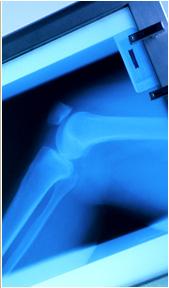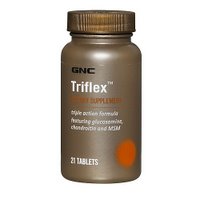Knee'd A Reason To Lose Weight?

Yes, there are options such as over the counter pain relievers or anti-inflammatories.
A second option is something called NeoVisc which is an injection that goes directly into your knee to improve the "natural viscosity and elasticity of synovial fluid" - just like oiling a hinge. Injections are needed every 4-12 months (depending on pain tolerance & severity), if your willing to flip the $300.00 plus bill yourself because its not covered by health care.
As a last option you can get a Knee replacement, but this is really only something that should be considered if you're +60 yrs.
So, my options are popping pills, expensive painful injections or surgery...ahhhhhh, no, no thanks & no way.
Sound familiar? Well, yesterday and today opened my eyes to something new and something that needed reinforcing.
First off let's discuss the more obvious option...losing weight! I knew long ago that my excess weight was putting excess strain on my knee, and therefore putting me through excess pain. After all this blog was started in part due to my reoccurring knee injury as a way to prevent it from happening again.
So, what reinforced my goal to lose weight and relieve my knee? A short article in Prevention titled "A pound lost is 4800 saved" which states:
"In a study of 142 overweight men and women with osteoarthritis of the knee, researchers found that every pound patients lost equaled 4 fewer pounds of pressure on their knees--that's per step.Considering that I have currently lost 14.9 lbs and that I still have +28 lbs to go, that's a lot of pressure taken off my knee. Oh, and now that I think about it -- yes, I know Prevention is a chic magazine...but it contains a lot of useful information, and so does their website.
Dropping just 10 pounds could spare each knee 48,000 pounds of pressure per mile, says Stephen Messier, PhD, study author and an exercise science professor at Wake Forest University. 'People with osteoarthritis often avoid exercise. But this research shows that exercise and a little weight loss can reduce pain by 30%.' "
- Prevention. Written by Selene Yeager author of New Foods for Healing (Rodale, 1998), the book from which this story was excerpted.
As for the second option....in yesterday's post "The Best Supplements For Men" I featured an article from Men'sHealth by the same name. In this article was the following write-up on knee pain:
"The remedy: Glucosamine plus chondroitin
Why it works: Glucosamine is a building block of connective tissue, while chondroitin helps cartilage retain water so it stays flexible. Together they soothe sore joints by keeping cartilage supple and in good supply. A recent study in the New England Journal of Medicine reports that 79 percent of men who took 1,500 mg glucosamine and 1,200 mg chondroitin daily felt a significant reduction in chronic knee pain."
-Men'sHealth
 Excited by this new information I took a visit to my local GNC store, where I found a product called GNC Triflex
Excited by this new information I took a visit to my local GNC store, where I found a product called GNC Triflex- Triple action formula.
- Combines glucosamine, a natural component found in connective tissues and joint cartilage with chondroitin and MSM.
- Glucosamine and chondroitin provide many benefits:
- Supports the body's natural ability to support joint tissue/function*
- Helps rebuild cartilage and lubricate joints*
- Support the body's ability to support joint health integrity*
- Supports the body's natural ability to regenerate cartilage*
- In addition to Glucosamine and Chondroitin this highly effective product also contains MSM which is an organic sulfur found within connective tissues and joint cartilage.
- GNC.com (for complete product information)
I figured I'd give it a whirl for a few months and see if it helps....but for heaven's sake please heed the following advice:
Hopefully this post helps out someone other than myself...or is at least an interesting read because it took a long time to complete."PROCEED WITH CAUTIONSupplements and prescription drugs have a lot in common. Both can help you feel better and avoid common ailments, and they're readily available at the local CVS. But natural remedies are missing something their Rx counterparts come with: a Patient Package Insert. This FDA-approved document provides vital information on how to take a drug safely, identify its negative side effects, and avoid potentially dangerous interactions with other drugs. However, because the FDA doesn't regulate supplements under the same guidelines as prescription medications, the only watchdog over your intake is you. So follow these three rules to make sure you do the job right. After all, you can't improve your health if you're compromising it.
DON'T IGNORE SYMPTOMS
"Even too much vitamin C can cause diarrhea," says Ruch Kava, Ph.D., R.D., director of nutrition for the American Counsel of Science and Health. "If you reduce the dosage and the problem goes away, you're in the clear." Doesn't help? Stop using it. Upset stomach and skin rashes are the most common complaints; glucosamine and saw palmetto are two likely culprits.
AVOID AN OVERDOSE
Large amounts of water-soluble vitamins, such as B12, are seldom harmful, because your body can easily excrete any excess. But high doses of fat-soluble vitamins -- specifically vitamins A, D, and E -- are stored in organs and tissues, and can cause dry skin, nausea, joint pain, and depression. The safe limit for men is 3,000 mcg of vitamin A, 2,000 IU vitamin D, and 1,000 mg of vitamin E per day.
MIX WELL
"If you're being treated for heart disease, you're crazy if you don't talk with your doctor before starting a supplement," Kava says. For instance, Ginkgo biloba and ginseng both thin your blood. As a result, they can exacerbate the effects of some heart medications and cause dangerously low blood pressure. To be safe, always read both product labels and double-check with your pharmacist."
- Men'sHealth
Happy Bloggin'








3 Comments:
I too used to suffer from knee pain. Earlier this year I changed my lifestye and started taking the G/C. I've lost 50 pounds and my knees feel better than ever.
For me, I think the exercise/diet and G/C worked in combination and hopefully resulted in a sort of "synergistic" benefit
http://paleofit.blogspot.com/
Really interesting meal plans from you! Thanks for sharing.
--
Authour at Phentermine Blog
Supplements and prescription drugs have a lot in common. Both can help you feel better and avoid common ailments but ashwagandha prostate is always better.
Post a Comment
<< Home